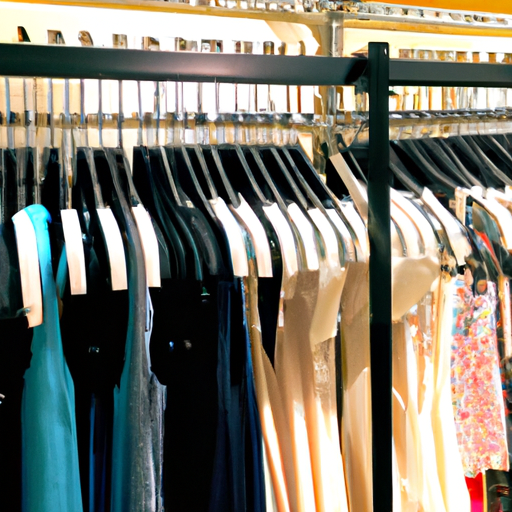- September 19, 2023
- Posted by: DBS
- Category: Business Setup

If you’re considering starting a clothing business in Dubai, there are several important factors to consider. Setting up a business in Dubai can be a complex process, but with the right knowledge and guidance, it can also be a rewarding venture. From understanding the process of business incorporation to exploring the various options available for company formation, this article will provide you with essential information to help you successfully establish your clothing business in Dubai. Additionally, we will delve into the benefits of setting up your business in one of Dubai’s free zones and the necessary services such as pro services and corporate bank accounts to ensure a smooth and efficient start to your clothing business in the UAE.
Types of Clothing Businesses
Online Clothing Store
An online clothing store is a type of clothing business that operates solely on the internet. It allows customers to browse and purchase clothing items from the comfort of their own homes. This type of business offers convenience and accessibility for customers, as they can shop anytime and anywhere with an internet connection. Online clothing stores often have a wide range of options and styles to cater to different tastes and preferences. They can also reach a larger customer base compared to brick-and-mortar stores.
Boutique
A boutique is a small-scale, independently owned clothing store that offers unique and limited-edition items. It focuses on providing a curated selection of clothing and accessories to cater to specific customer preferences and trends. Boutiques often provide a more personalized and intimate shopping experience than larger retail stores. They may specialize in certain styles or niches, such as luxury brands, sustainable fashion, or local designers. The atmosphere and ambiance of a boutique can greatly contribute to its success in attracting and retaining customers.
Wholesale Clothing Supplier
A wholesale clothing supplier is a business that sells clothing items in bulk to other retailers or businesses. They typically offer a wide variety of styles, sizes, and brands at discounted prices. Wholesale clothing suppliers play a crucial role in the clothing industry, as they provide retailers with the inventory they need to stock their stores. These suppliers often work directly with manufacturers or brands to secure competitive pricing and exclusive deals. Building strong relationships with retailers and maintaining a diverse and high-quality product range are key factors for success in the wholesale clothing industry.
Legal Requirements for Clothing Businesses
Choosing a Business Structure
When starting a clothing business, it is important to choose the right business structure. The most common options include sole proprietorship, partnership, limited liability company (LLC), and corporation. Each structure has its own advantages and disadvantages in terms of liability, taxation, and management. Consulting with a business attorney or a financial advisor can help you make an informed decision based on your specific needs and goals.
Registering Your Business
Registering your clothing business is a crucial step to ensure its legality and protection. This process typically involves registering your business name, obtaining a tax identification number, and applying for necessary permits and licenses. The specific requirements and procedures vary depending on your location and the type of clothing business you are setting up. It is important to research and comply with the registration requirements of your local government authorities to avoid any legal issues in the future.
Obtaining Licenses and Permits
In addition to registering your business, you may need to obtain specific licenses and permits to operate your clothing business. These requirements may include a general business license, a sales tax permit, and permits for specific activities such as selling clothing in public spaces or conducting online sales. It is important to check with your local licensing agencies and regulatory bodies to ensure that you are in compliance with all necessary regulations. Failing to obtain the required licenses and permits can result in fines, penalties, or even the closure of your business.
Choosing a Business Name
Consider Cultural Sensitivities
When choosing a business name for your clothing business, it is important to consider cultural sensitivities, especially if you plan to operate internationally or in diverse communities. Certain words or phrases may have different meanings or connotations in different cultures or languages. Conducting thorough research and consulting with experienced professionals can help you avoid unintentional offense or misunderstanding.
Ensure Availability and Trademark
Before finalizing your business name, it is crucial to ensure its availability and protectability. Conduct a comprehensive search to check if the name is already in use by another business in the clothing industry or any other relevant field. Registering your business name as a trademark can provide legal protection and prevent others from using a similar name in the same industry. Consulting with a trademark attorney can guide you through the registration process and help you protect your brand identity.
Location Selection
Research Different Areas
The location of your clothing business can significantly impact its success. Conducting thorough research on different areas can help you identify the best location for your target market and business goals. Consider factors such as population density, demographics, economic growth, and the presence of competing clothing businesses. Analyzing market trends and customer preferences can also help you choose a location that aligns with your brand and attracts your desired customer base.
Consider Competition and Target Market
Assessing the level of competition in a potential location is crucial for your clothing business. Determine if there is already an oversaturation of clothing stores or if there is an opportunity for your unique offerings to thrive. Additionally, understanding your target market and their preferences is essential in selecting a location that will attract and retain customers. Consider factors such as convenience, accessibility, and the overall shopping experience that your target market values.
Accessibility and Visibility
The accessibility and visibility of your clothing business can greatly impact its foot traffic and overall success. Choose a location that is easily accessible to your target market, whether it is through public transportation, parking facilities, or proximity to popular areas. Additionally, consider the visibility of your store from the street or online platforms. A highly visible location can attract potential customers and increase brand awareness.

